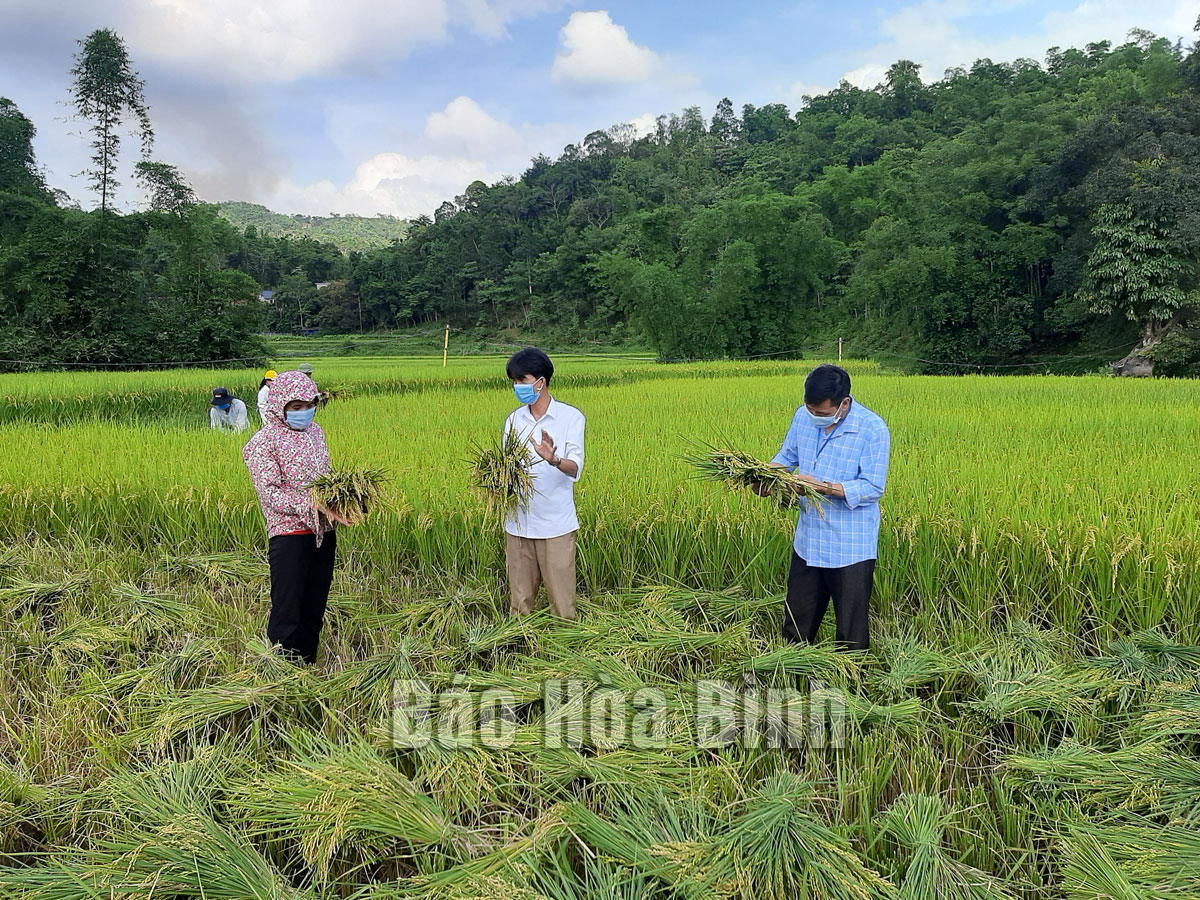
(HBO) – Over the last 5 years, science and technology’s contribution to Hoa Binh’s economic growth has increased from 23.08 percent to 30.24 percent and that of labour productivity rose from 5.25 percent to 8.33 percent. Science, technology and innovation has become a key accelerator of growth in labour productivity and improvement of the province’s competitiveness.

Farmers in Muong Chieng Commune, Da Bac District apply
technology in intensive farming of J02 rice variety to enhance productivity and
production value.
The province has benefited from agricultural and
rural projects as parts of the Ministry of Science and Technology’s programmes
aiming to accelerate technology transfer and apply science and technology to
boost socio-economic development in rural and mountainous areas.
From 2011 – 2020, Hoa Binh implemented four
national science-technology tasks with total budget of 18.43 billion VND from
the central budget, including the pilot production of medicinal plants in Lac
Thuy District, preservation of genetic resources of "tai chua" plant
(garcinia cowa), application of biological measures to prevent certain pests on
orange and tangerine roots, and drafting a proposal for long-term population
resettlement and solutions for effective management of land in areas vulnerable
to natural disasters and climate change.
The accomplishment of the national tasks has
played a part in reducing poverty and minimizing impacts of natural disasters,
and pest and disease control in the province, helping it enhance productivity
and develop commodity production zones.
In addition, the province has implemented 17
projects under the programme supporting the application and transfer of
technological advances for socio-economic development in rural and mountainous
areas with total budget of close to 106 billion VND. The projects mainly focus
on the areas of agriculture and rural development to help create farming
practices using advanced and scalable techniques.
During the past 2 years, the province has
carried out a project to boost agricultural growth and develop livelihood for
natural disaster-affected people across 13 communes and townships and 91
villages in Da Bac District. Many other projects have also proved effective in
other localities in recent years.
The Standing Board of the Hoa Binh provincial Party Committee has agreed in principle on a proposal by the Standing Board of the Party Committee of Hoa Binh city to gather feedback on the city’s 1:2000 zoning plan, which forms part of its broader urban development strategy.
Hoa Binh province has made notable progress in public administration reform and digital government development, with the satisfaction index among citizens and businesses reaching over 84%, according to recent government evaluations.
Thanks to great efforts by local authorities in recent times, the governance and public administration performance of Mai Chau district has been significantly improved.
In the afternoon of June 6, the Party Committee, the People's Council, the People's Committee and the Fatherland Front of Lac Son district solemnly held a meeting to celebrate the 139th anniversary of the district's founding (1886–2025) and the 79th anniversary of the establishment of the district's Party Committee (1946–2025). There was the attendance of Mr. Bui Van Thang, the Vice Chairman of the Provincial People's Council; Mr. Quach Tat Liem, the Vice Chairman of the Provincial People's Committee; Ms. Dang Bich Ngoc, the Deputy Head of the National Assembly Delegation of the province; as well as the former leaders of the province and district through various periods, who are the natives of the district.
Implementing the Politburo’s Resolution No. 57-NQ/TW on breakthroughs in science – technology, innovation, and digital transformation is a golden opportunity for the northern mountainous province of Hoa Binh to renew growth model, improve competitive edge and shorten digital gap.
Resolution 57-NQ/TW, issued by the Politburo on December 22, 2024, identifies sci-tech, innovation, and digital transformation as strategic breakthroughs to build a developed and prosperous nation. In Hoa Binh province, this spirit is not just a slogan, it’s being put into action through concrete initiatives that form a "new development triangle”: digital citizenship, digital economy, and digital administration.



